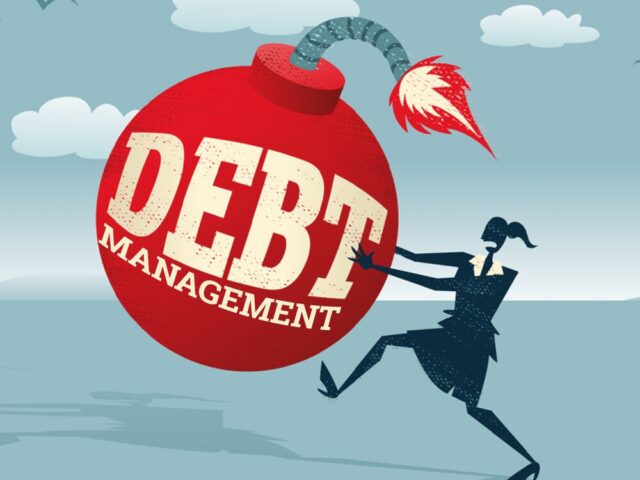
Are you ready to take control of your financial future? As a college student, it’s never too early to start building good money habits and understanding the basics of personal finance. From budgeting to investing, improving financial literacy can lead to greater financial stability and success in the long run.
You’ll be engrossed in many activities while pursuing your college degree. For instance, you’ll be concerned about your academic performance and will have essays, dissertations, and research papers to complete. You’ll be dedicated to getting everything right, even if it means using platforms like WriteMyEssay. But one aspect you’re likely to overlook is your financial well-being.
Unfortunately, failure to learn how to manage your finances may affect you both in the short and long run. For example, it’ll be challenging for you to handle your expenses in college. It may get to a point where you contemplate quitting because you’ve run out of money. Also, you’ll be unable to save or invest even when you earn a lot of money.
What does financial literacy mean for college students? In simple terms, financial literacy means the ability to handle money. The specific concepts you must know as you learn about your finances include:
- How/where to earn a decent income
- The best spending habits
- Budgeting
- Excellent debt management
- How to save and invest
- Planning for retirement
Why are financial management skills important for college students? Let’s check out the top reasons.
Helps Understand How to Manage Debts Effectively

You’ll encounter many expenses while hunting for your degree. You’ll have tuition, accommodation, and transport expenses to take care of. You’ll also need money to entertain yourself. At some point, you may be forced to take loans to take care of these expenses. These loans are part of the debts you should learn how to manage.
Before taking a loan, you should know what you’re getting into. You should know the interest payable, the repayment period, the total amount payable, and the consequences of failing to repay the loan. Overlooking these aspects may come with serious consequences, including prosecution.
When you’re financially literate in college, you can learn how to manage all your debts. For example, you’ll understand how to improve your credit score. Moreover, you’ll know when and where to borrow. And as a benefit, excellent debt management in college will help safeguard your mental well-being.
Helps Grasp the Concept of Budgeting
Your college years may be your first experience staying away from home. At this point, you’re required to understand how to subdivide the funds you have to take care of your expenses. You don’t want to spend all your money on entertainment and forget about food. It’s for this reason that you should learn about budgeting.
What are the specific concepts you learn during your financial literacy courses in college? First, you’ll understand how to list your expenses from the most basic to the luxuries. You’ll also know how to allocate your money to your various expenses. Consequently, you’ll become a wise spender by leaving out unessential subscriptions.
Budgeting shouldn’t be a foreign concept for you as a college student. You’ll still need these skills even after you graduate. When you know how to budget early, saving and investing in the future becomes easy.
Enlightens About Financial Emergency Preparedness

Even after you create a budget, you should know that everything may not always go as planned. Events like sickness and financial losses may leave you overwhelmed. Such misfortunes strike when you least expect them. Moreover, you may not know the financial impact of such occurrences on you.
When you learn about financial literacy early, you understand how to manage emergencies. So, you should factor in emergencies in your budget. Although the funds you set aside may not completely cater to the emergency, they can prevent you from getting into huge debts. Consequently, you’ll be responsible for your finances in college and after graduation.
Prevents Making Serious Financial Mistakes
Financial mistakes can come from many areas. For example, uncontrolled spending may leave you without money before the end of a given study period in college. Just as you’re careful when choosing essay writing services, you should also be watchful with your expenditure.
Financial literacy classes teach you a lot about money. First, they let you know how to stretch your limited finances to cover your unlimited expenses. Second, they help you understand how to use your credit card cautiously. Most importantly, it teaches how to save adequately and invest in areas with the highest earning potential, thus avoiding costly investment mistakes.
Financial Planning for Life after College
As college students approach the end of their academic journey, it becomes crucial to start planning for their financial future. Financial planning for life after college involves understanding and preparing for the financial responsibilities that lie ahead. It encompasses various aspects such as managing student loan debt, finding employment, budgeting, and saving for long-term goals.
One important step in financial planning is creating a realistic budget that considers post-graduation expenses like rent, utilities, transportation, and loan repayments. It is essential to assess one’s financial situation and make necessary adjustments to ensure a smooth transition into the working world.
Exploring Entrepreneurship and Financial Independence in College

College provides a unique opportunity for students to explore entrepreneurship and cultivate financial independence. Many students are drawn to the idea of starting their own businesses or pursuing freelance work while still in school. By taking advantage of the resources and supportive environment available on campus, students can turn their entrepreneurial dreams into reality.
Entrepreneurship in college allows students to gain valuable skills such as problem-solving, creativity, and resilience. It also provides an avenue for financial independence, giving students the opportunity to generate income while pursuing their passions. Whether it’s launching a small online business, offering tutoring services, or starting a student organization, entrepreneurship in college can be an empowering and fulfilling experience.
While exploring entrepreneurship, it is important for students to educate themselves on financial management, including budgeting, taxes, and investment strategies. Seeking guidance from mentors, attending workshops, and utilizing campus resources can help students navigate the complexities of entrepreneurship and set a strong foundation for their financial future.
Take-Away
You shouldn’t underestimate the value of financial management as a college student. With financial literacy skills, you can manage your debts, budget, and prepare for emergencies. Besides, you can avoid making serious financial mistakes. So you should learn financial management before, during, and even after college.









